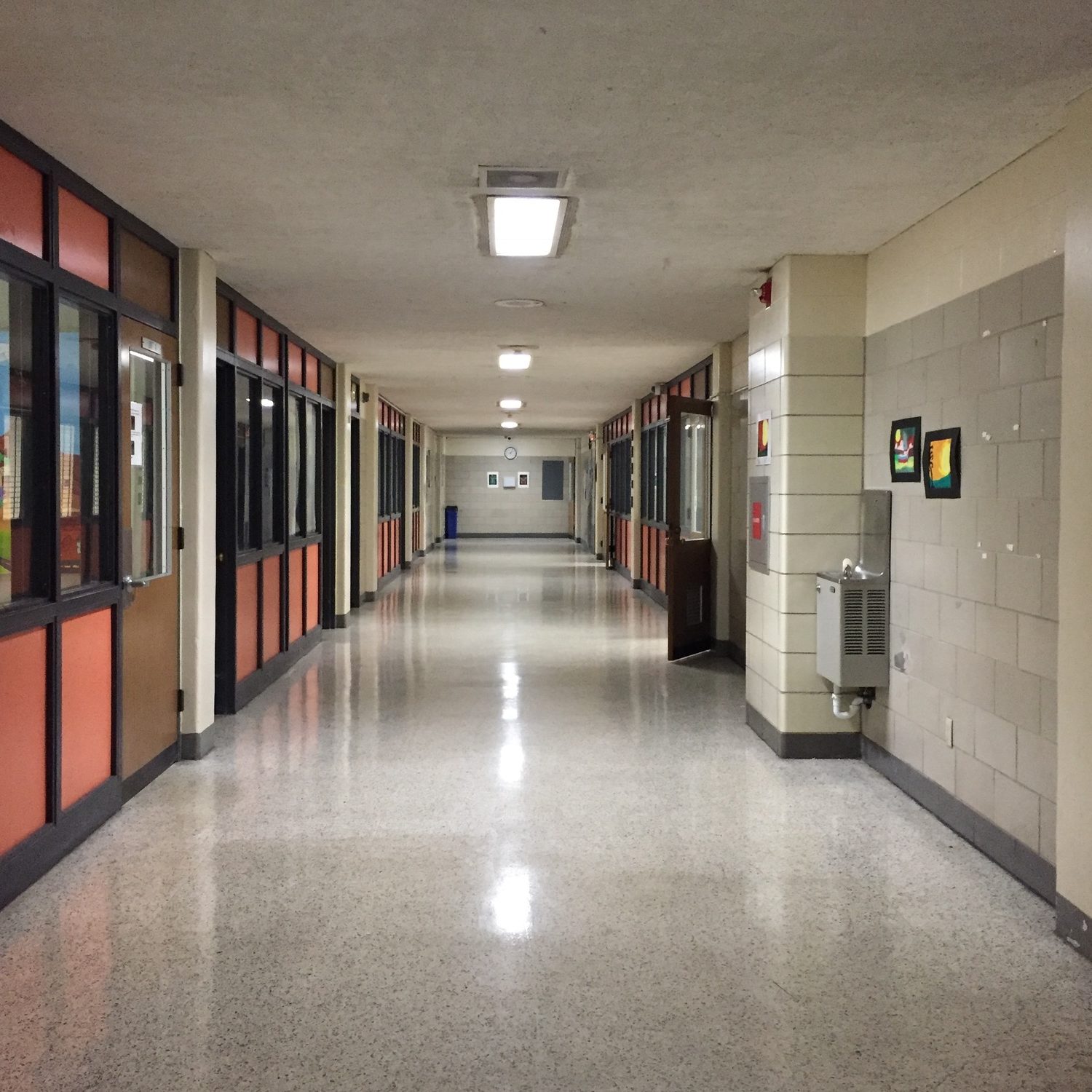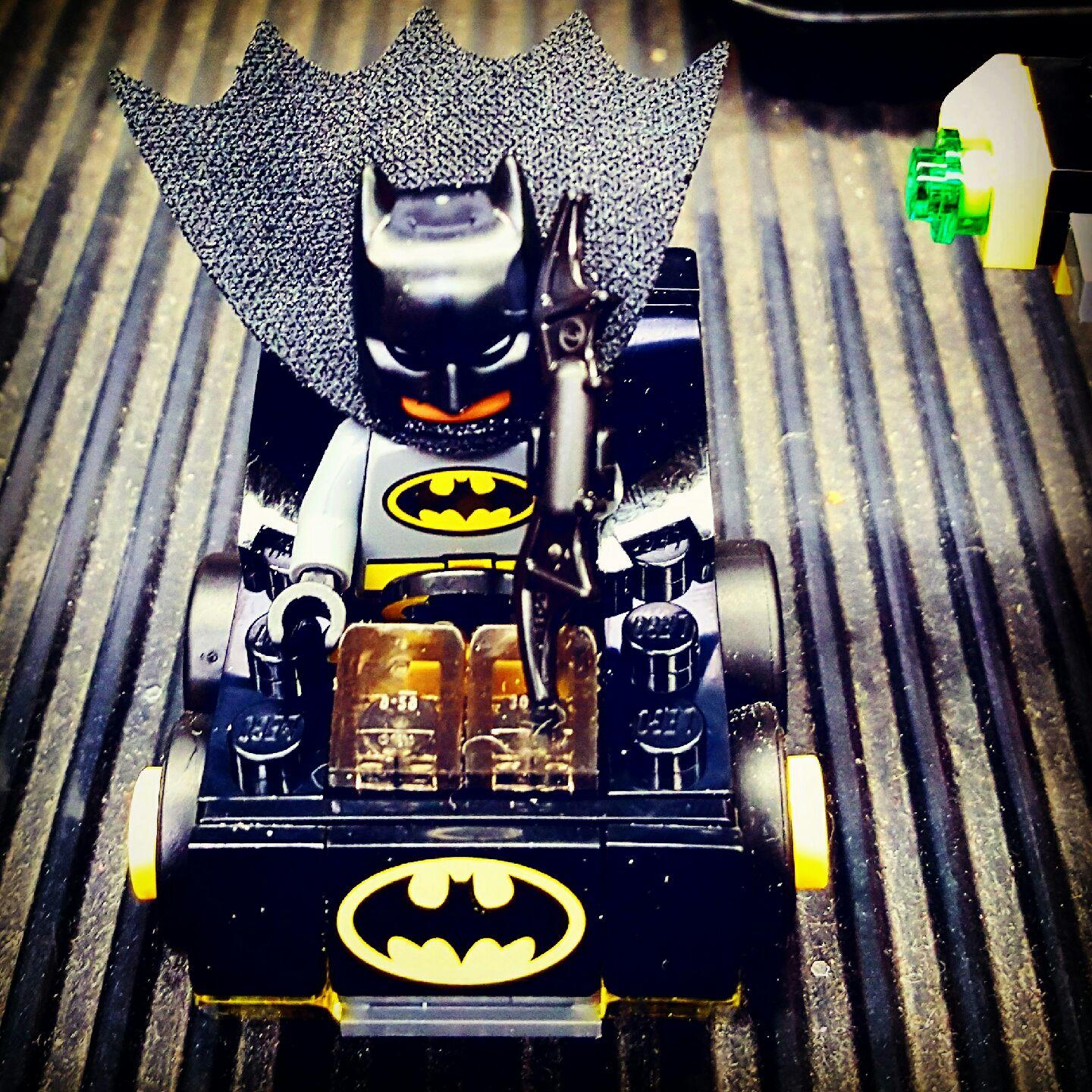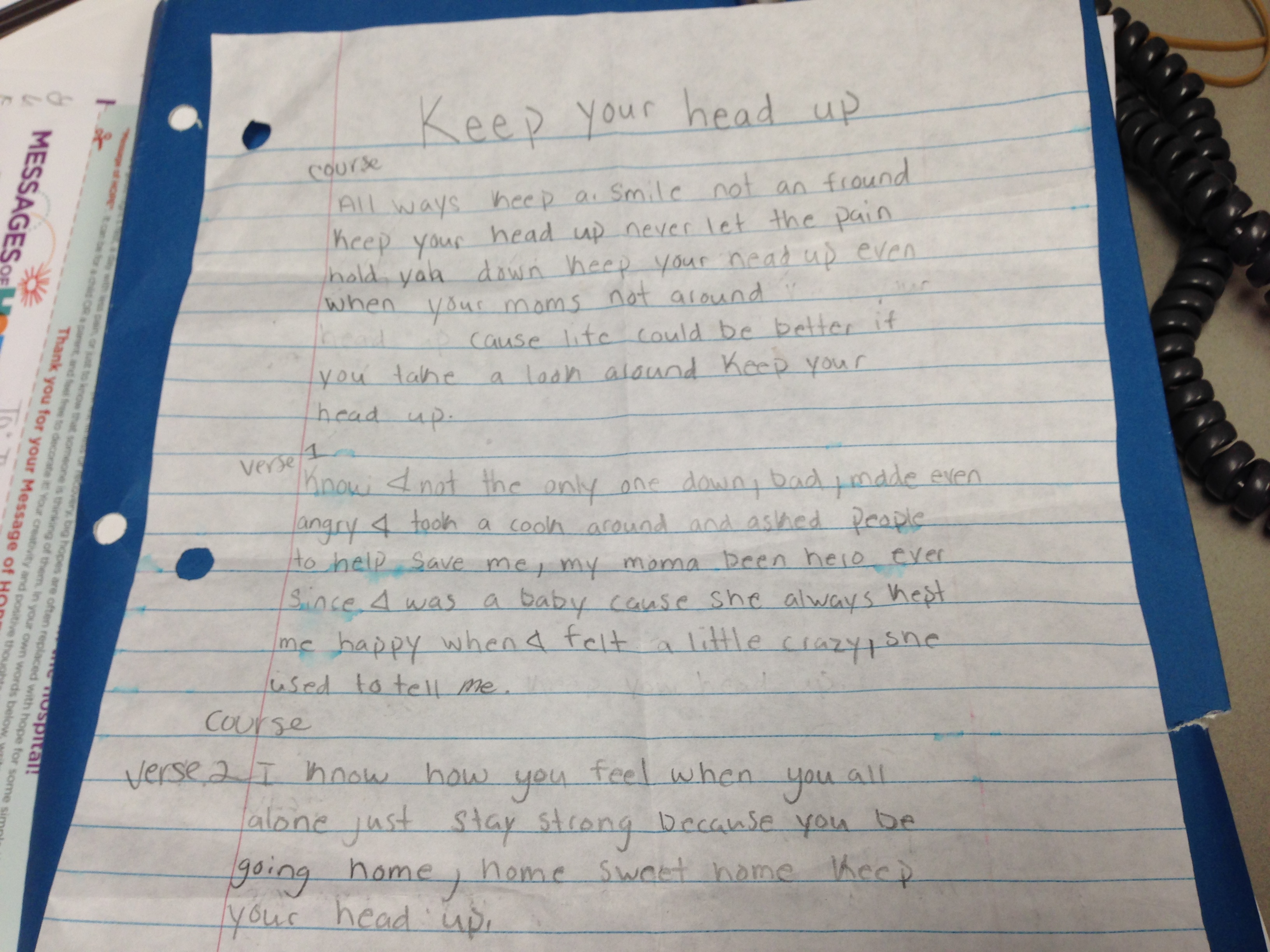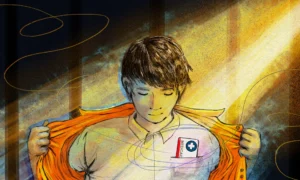
ServiceWorks Points of Light
The St. Louis Juvenile Detention Center is the first juvenile justice facility in the country to host a ServiceWorks cohort. Credit: Margaux Bereuter Download permissions
“Tell me about a time you made a mistake.”
Every young person has been asked this question in a job interview. After all, what better way to assess someone’s work ethic, perseverance and self-reflection than hearing how they learn from failure or just life’s challenges?
Ask any seasoned academic, entrepreneur or parent and they will tell you mistakes were invaluable to their personal development and ultimate success. Yet, despite our society’s theoretical value of resilience, when it comes to justice-involved youth, we undervalue the growth and insight that result from overcoming adversity.
Approximately 30 teenagers are housed at the St. Louis Juvenile Detention Center at any given time. And whether it was in my role as a volunteer there for four years, or now as an AmeriCorps VISTA with ServiceWorks STL, every session I spend at the center continues to leave me surprised and humbled by the young men’s underappreciated assets and abilities. I’ve seen firsthand just how ambitious, intelligent and compassionate they can be.
ServiceWorks is a youth development program from AmeriCorps, the Citi Foundation and Points of Light that uses volunteer service to teach 16- to 24-year-olds the life and leadership skills necessary for college and career success. And this group of about 10 youth was the first time ServiceWorks has hosted a cohort inside a juvenile justice facility.
Not only do these teenagers have the potential to be changemakers in their community, they truly want to be. I first noticed their innovative problem-solving skills during a ServiceWorks module called “Passion and Community.” In this workshop, the program’s participants, known as “Service Scholars,” brainstorm community needs and discuss ways in which they can use their passions and talents to meet those needs.

ServiceWorks Points of Light
Service Scholars housed at the St. Louis Juvenile Detention Center wanted to make toys for children at Cardinal Glennon Hospital. Credit: Margaux Bereuter Download permissions
Among the issues they identified were the lack of education, recreation and employment opportunities that push teenagers into gangs as their only hope for survival. Because most have firsthand experience with gang membership, these young men were able to recognize the appeal of gangs and come up with alternatives that would better meet teenagers’ needs.
The Service Scholars advocated for building community centers to provide youth with after-school alternatives to gang activity. Recognizing the sense of protection and belonging that comes with gang membership, they also suggested their neighborhoods create mentorship programs to provide boys with those relational benefits — without the danger. They imagined a job-training program that would teach carpentry while simultaneously channeling those skills to restore abandoned buildings in St. Louis. They showed insight and creativity that can be rare among even experienced policymakers.
Each ServiceWorks cohort culminates in students utilizing the skills they develop during the course to conceptualize, plan and execute a capstone service project. These Scholars demonstrated creativity and compassion: As they brainstormed projects, the theme that arose was their desire to help children.
I was struck by their empathy and desire for the next generation to experience fewer barriers to success than they had. The cohort eventually settled on assembling encouragement kits for children at St. Louis’ Cardinal Glennon Hospital — a project inspired by one Scholar’s stay there as a child. His familiarity with the loneliness and suffering that comes with hospitalization motivated him to lead his group toward providing hope for children in that same situation.
Although kits are a relatively common service project, the Scholars’ ideas for the kit contents were not. They wanted to build their own toys. And in addition to the notes of encouragement, the Scholars wrote and recorded a song to lift the children’s spirits, show how deeply they care and long to make a lasting impact.
“I know how you feel when you all alone,” one Scholar, J., rapped. “Just stay strong because you be going home.” It’s not difficult to imagine how a young man locked in a juvenile detention center would be able to relate to a hospitalized child’s loneliness and longing for home. In fact, the ease with which the Scholars could relate to the children made me realize the importance of their inclusion in community change efforts.

ServiceWorks Points of Light
The lyrics to “Keep Your Head Up” – a rap song written by a group of Service Scholars at the St. Louis Juvenile Detention Center. They recorded the song to comfort young patients at Cardinal Glennon Hospital. Credit: Lisa Cohn Download permissions
Without empathy, it’s easy for youth to become complacent, losing the drive to persevere in the midst of seemingly insurmountable barriers. To alleviate any kind of suffering, it’s crucial to harness the determination of those who can personally relate.
“I’m writing this letter to tell you that I was in your position and that you can make it through,” wrote D., the young man who inspired the hospital project, “And even if you feel like nobody understands you I do, so take this letter and keep it so whenever you feel down, just read it.”
Despite being in the juvenile justice system, this ServiceWorks cohort of 16-year-olds demonstrated a deep desire to use their experiences and abilities to make other’s lives better. Now it’s our turn to let them.
All these young men will be released in the near future, and we, as a society, decide their fate. Will we employ them, channeling their insights, passions and talents toward continued personal growth and community good? Or will we suppress their gifts, ignore their ingenuity and deprive them of the opportunity to be the agents of change they strive to be?
We need to look beyond resumes and start appreciating unconventional journeys that may come with their share of bumps and bruises, but ultimately result in the development of traits that employers and communities need. Trusting that no human can be reduced to their worst mistakes, we must embrace and empower these teenagers as they each seek to leave their individual imprint on their families, neighborhoods and city.
 Lisa Cohn is an AmeriCorps VISTA with ServiceWorks STL, based at the United Way of Greater St. Louis. A recent graduate of Washington University in St. Louis, she is passionate about criminal justice reform and plans to dedicate her life to empowering those who have been affected by mass incarceration.
Lisa Cohn is an AmeriCorps VISTA with ServiceWorks STL, based at the United Way of Greater St. Louis. A recent graduate of Washington University in St. Louis, she is passionate about criminal justice reform and plans to dedicate her life to empowering those who have been affected by mass incarceration.































